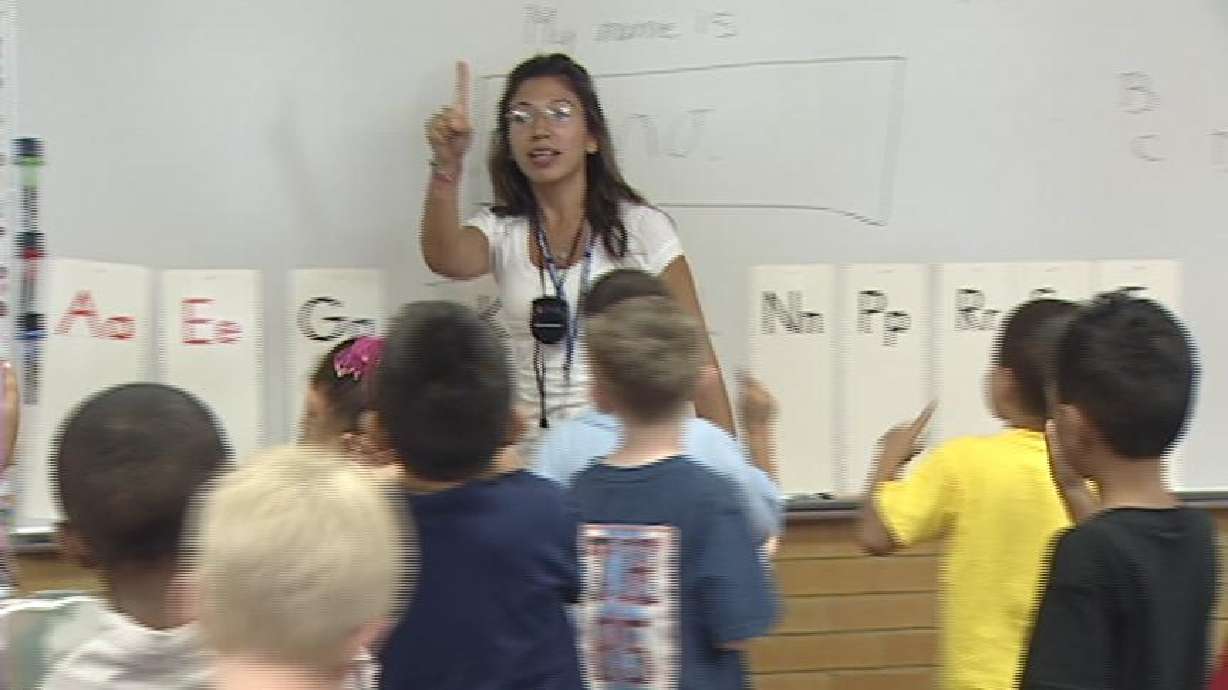Estimated read time: 3-4 minutes
This archived news story is available only for your personal, non-commercial use. Information in the story may be outdated or superseded by additional information. Reading or replaying the story in its archived form does not constitute a republication of the story.
SALT LAKE CITY (AP) -- A lawmaker seems even more committed to getting school districts to consider a year-round calendar, after a state school board member said the proposed remedy to Utah's teacher shortage is "a little bit in dreamland."
The rift highlights the growing tension between the Republican-dominated Legislature and the nonpartisan state Board of Education, a conflict that erupted when the board refused to implement private-school vouchers while the legality of the program was uncertain.
The latest dispute comes over a plan designed to increase teacher salaries, attract more people into the profession and send high-school graduates out earlier -- all without raising taxes.
The proposal by a Washington School District official in southwestern Utah is embraced by Sen. Howard Stephenson, R-Draper, co-chairman of a committee that focuses on teacher shortages and compensation.
Under Lyle Cox's plan, schools would create a school calendar with three semesters. High-school students would pick at least two, but some could attend all three and graduate early. At the elementary level, students would attend three semesters but for half a day.
Teachers would earn about 60 percent more because they would be working more, Cox said.
Schools would be able to afford higher salaries because they would need fewer teachers. Classes would be smaller. In growing districts, money would be saved by using buildings all year instead of building new schools, Cox said.
"It seems to me to be a no-brainer," Stephenson said during a committee meeting last week.
But the details make the plan more difficult.
Cox's proposal depends on an equal number of high-school students in each semester. Some might be forced to attend during a semester they don't want. Students who take Advanced Placement courses could go months between the end of class and their national exams.
Parents of younger children would have to give up traditional summer breaks, and teachers would have to be willing to work more hours.
"The Lyle Cox model is a little bit in dreamland. We need to use realism," school board member Debra Roberts said. "Yes, it might be very good for five districts, but we have 40 districts. ... I think even Lyle himself would say there are problems with this model."
Cox doesn't dispute that more work needs to be done with his proposal. It also needs a public-relations campaign, he said Tuesday.
"The only way you can really do it is to change a mindset that's been around for years and look at this in a totally different way -- and that's not easy," he said.
Stephenson and committee co-chairman Rep. Greg Hughes, R-Draper, are livid with Roberts for her comments during the hearing.
"What I'm learning is that the die-hard education advocates have a different goal than the public. Their goal seems to be simply to get more money as opposed to using that money efficiently," Stephenson said.
"When a proposal will improve teacher pay, improve productivity, increase the use of our school buildings and actually reduce the need for additional buildings, the education community is suddenly cold to the idea and instead pushes proposals to raise taxes and increase spending," he said.
Roberts, however, didn't propose higher taxes and didn't say she was opposed to testing the year-round calendar.
She said she didn't think it was a good statewide model, particularly in low-growth, rural districts where cost savings would be difficult to achieve. Roberts said there would be additional costs, such as air conditioning in the summer and maintenance work at night.
Phone messages left for Roberts were not returned Tuesday.
Hughes said he didn't know if Roberts' comments were the result of bad blood between the school board and Legislature.
"I thought some of her comments were inappropriate for constructive dialogue," he said. "Reform in public education does not come easily. When you even explore radical changes or different ideas, there's an inherent opposition to that."
(Copyright 2007 by The Associated Press. All Rights Reserved.)









